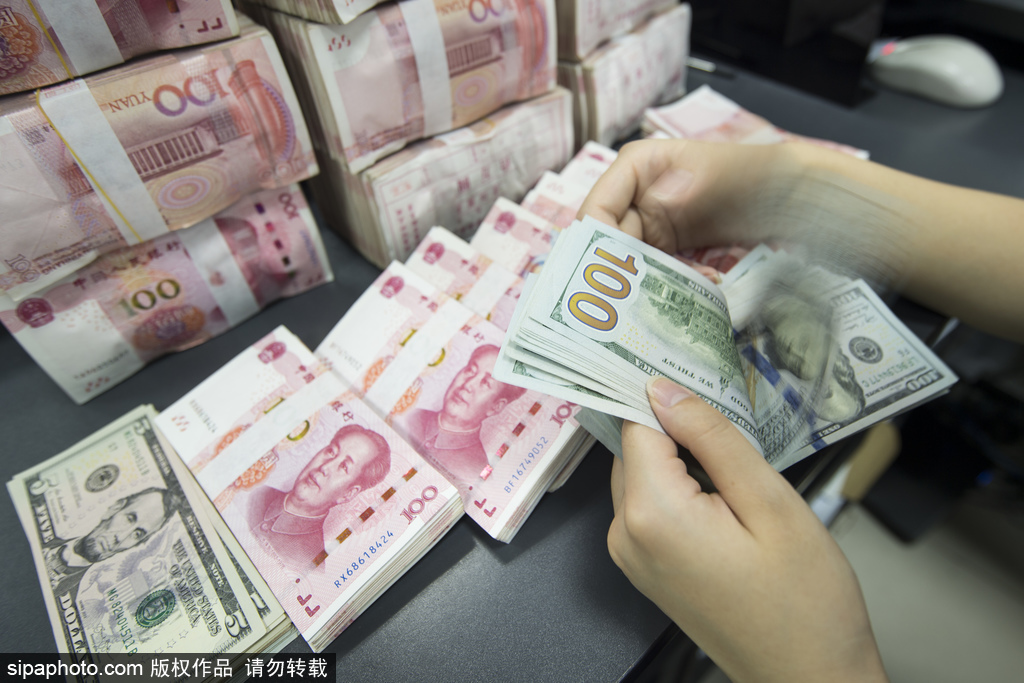Country's forex reserves relatively ample, experts say
By Zhou Lanxu | chinadaily.com.cn | Updated: 2023-05-09 02:37

The size of China's foreign exchange reserves may further increase slightly this year, given the country's export resilience and a weakening US dollar, after the figure rallied to a 14-month high in April, experts said on Monday.
While some developing economies have seen their foreign exchange reserves reduce, China has maintained a "relatively ample" size of reserves, which will give the country enough scope to deal with elevated external uncertainties, and ensure energy and food security, they said.
China's foreign exchange reserves hit a 14-month high, reaching $3.2048 trillion by the end of April and marking the second consecutive month of rally, the State Administration of Foreign Exchange said on Sunday.
The amount was up by $20.9 billion, or 0.66 percent, compared with the end of March, SAFE said, citing a weakening dollar and rebounding global financial markets as the drivers.
In April, the US dollar index, which gauges the greenback's value relative to a basket of currencies, fell by 0.91 percent to 101.66 as the market bet on a nearing pause of the US Federal Reserve's tightening, according to market tracker Wind Info.
A softer dollar meant that reserves denominated in other currencies became more valuable in dollar terms, which accounted for about $10 billion of the increment in China's foreign exchange reserves last month based on some estimates.
"Changes in asset prices, including a weaker dollar, were a key reason for the rise in foreign reserves, while China's better-than-expected growth in foreign trade acted as the basis for the rebound," said Yang Haiping, general manager of the Bank of Inner Mongolia's research and development department.
Despite concerns that China's exports could lose momentum amid lower global growth, SAFE data showed that the country's surplus of trade in goods and services, a key source of foreign exchange receipts, totaled $32.5 billion in March, double the amount seen in February, pointing to the resilience of the country's export growth.
Liu Chunsheng, an associate professor of international trade at the Central University of Finance and Economics, said the country's foreign exchange reserves may continue to increase this year while maintaining overall stability, given the country's export resilience and a weakening greenback.
This trend will help boost China's ability to import strategic resources and safeguard the country's energy and food security amid global economic and geopolitical uncertainties, Liu said.
Underlining investor confidence in China's economy despite global economic downside risks, the A-share market rebounded this month, with the benchmark Shanghai Composite Index going up by 1.81 percent to close at 3,395 points on Monday.
Using March data for estimates, Guan Tao, global chief economist of investment bank BOC International, said that China's foreign exchange reserves can cover 13.2 months of expenditure induced by imports, up from 12.7 months by the end of last year, indicating that the country's size of reserves is "relatively ample".
Nevertheless, Guan cautioned that US economic and financial turbulence due to the Fed's radical tightening may still roil global stock and bond markets, thereby causing fluctuations in China's foreign exchange reserves.
As part of the country's efforts to diversify reserve assets to navigate external uncertainties, China has boosted official gold reserves for six consecutive months, which came in at 66.76 million ounces at the end of April, up by 6.6 percent year-on-year, SAFE data showed.
























